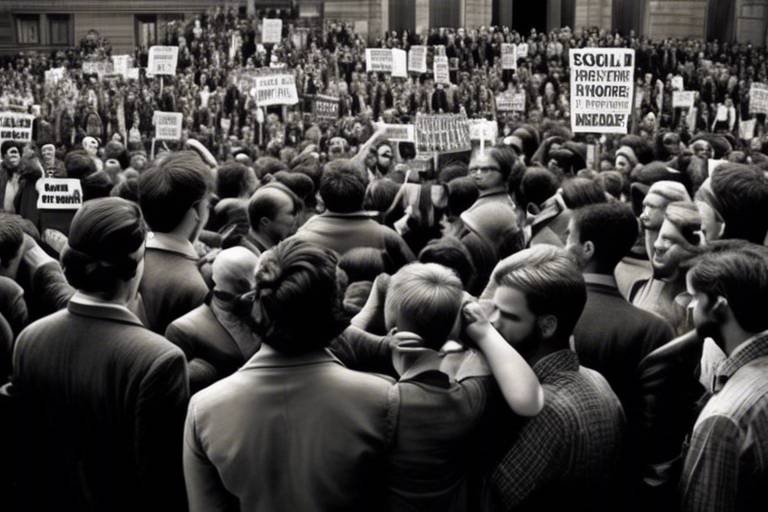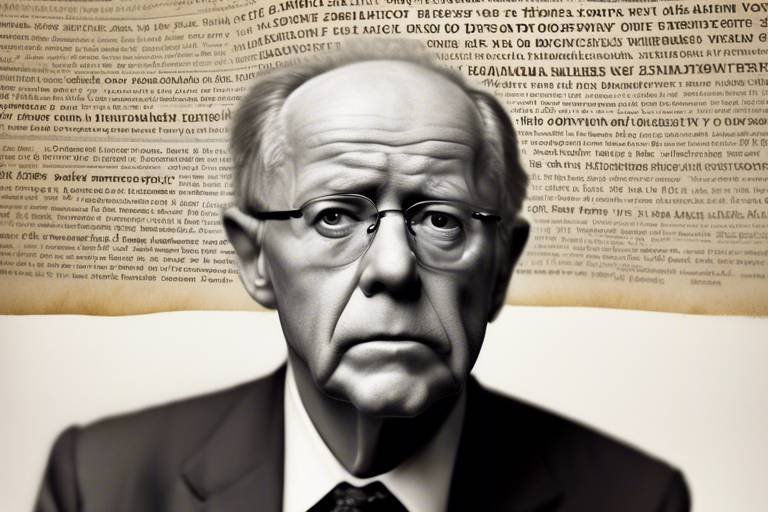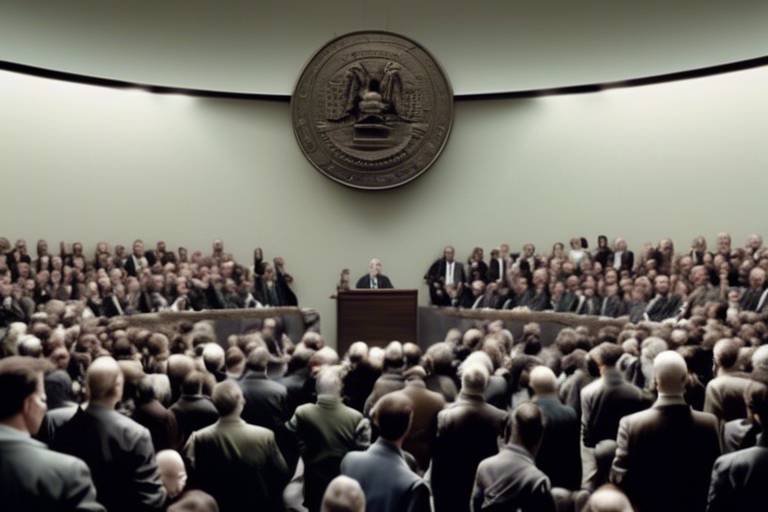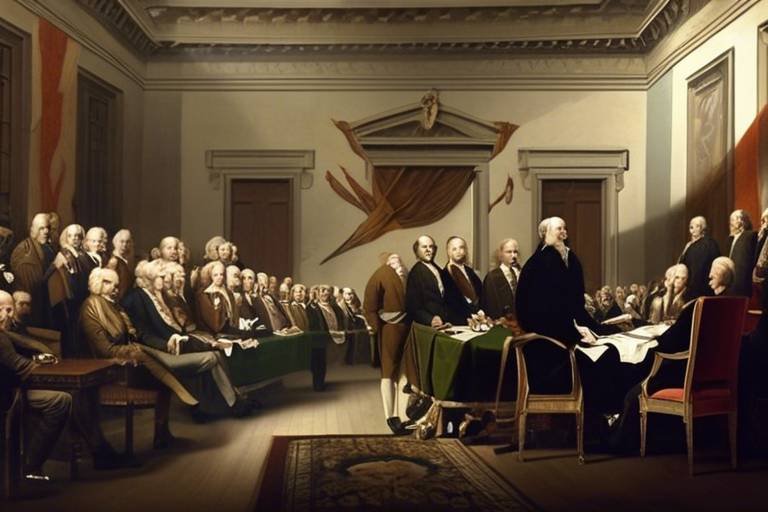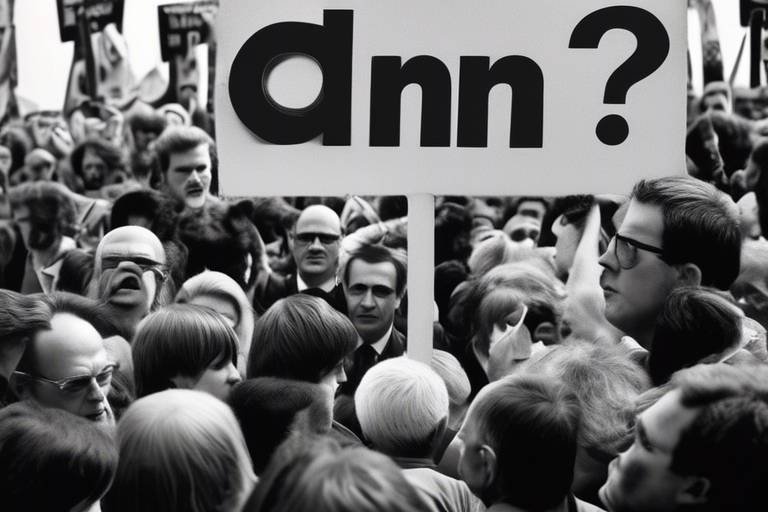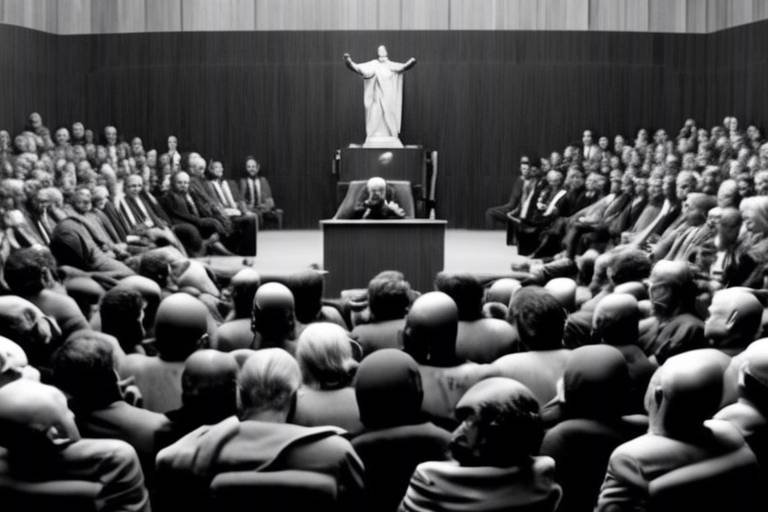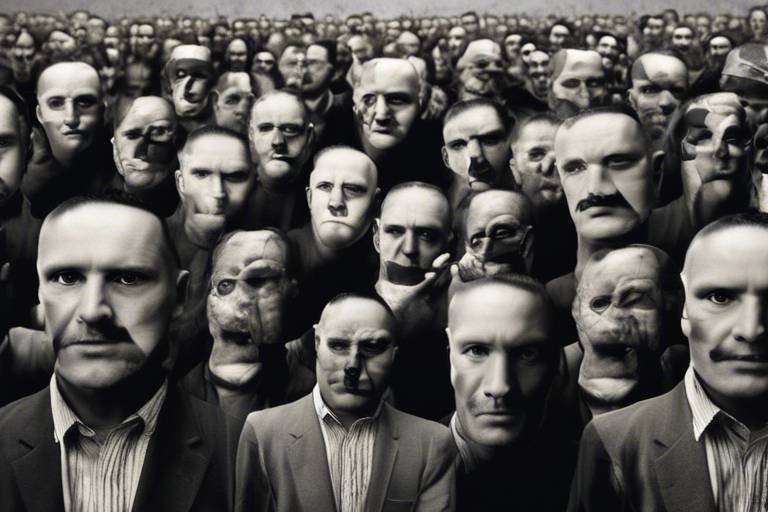Political Philosophies and the Struggle for Democracy
The journey of democracy is a fascinating one, filled with twists and turns that reflect the complex interplay of various political philosophies. From ancient times to the modern era, different thinkers have shaped our understanding of what democracy means and how it should function. As we navigate through this intricate landscape, we uncover the profound influence of political philosophies that have emerged over centuries, each contributing to the ongoing struggle for democratic governance.
Democracy isn't just a system of government; it's a living, breathing entity that evolves with society. The struggle for democracy often mirrors the struggles of individuals and communities seeking representation, justice, and equality. It is essential to recognize that political philosophies provide the theoretical underpinnings for these democratic movements, offering frameworks that guide the actions of individuals and groups fighting for their rights.
Throughout history, we have witnessed how political philosophies have ignited revolutions and inspired movements. The ideas of key thinkers have not only influenced political leaders but have also resonated with the masses, sparking a desire for change. For instance, the notion of popular sovereignty emphasizes that power ultimately resides with the people, a concept that has fueled numerous democratic movements across the globe.
As we delve deeper into the historical context of democracy, we find that it is not a linear progression but rather a series of battles fought against oppression and tyranny. The evolution of democratic principles has been marked by significant milestones, such as the signing of the Magna Carta, the American Revolution, and the French Revolution. Each of these events was propelled by the ideas of influential philosophers who challenged the status quo and advocated for the rights of individuals.
In the modern era, the struggle for democracy continues, with grassroots movements leading the charge for change. These movements are often born out of a collective frustration with existing political systems that fail to represent the voices of the people. Activists harness the power of social media and technology to mobilize support, spread awareness, and challenge injustices. The ongoing battle against authoritarianism, corruption, and inequality highlights the urgent need for a renewed commitment to democratic values.
In conclusion, the intersection of political philosophies and the struggle for democracy is a dynamic and ever-evolving narrative. As we reflect on the past and look toward the future, it is crucial to understand the philosophical foundations that support our democratic ideals. By acknowledging the contributions of key thinkers and recognizing the ongoing challenges, we can better appreciate the importance of active participation in the democratic process. The fight for democracy is far from over, and it requires the collective effort of informed citizens who are willing to stand up for their rights and the rights of others.
- What is the significance of political philosophies in democracy?
Political philosophies provide the foundational ideas and principles that shape democratic governance and influence political movements. - How have historical events shaped modern democracy?
Historical events, such as revolutions and reforms, have played a crucial role in establishing democratic principles and practices that we see today. - What role do grassroots movements play in democracy?
Grassroots movements are vital for advocating change, raising awareness, and ensuring that the voices of marginalized communities are heard in the political arena. - How can education impact democracy?
Education fosters informed citizens who understand their rights and responsibilities, promoting active participation in democratic processes.
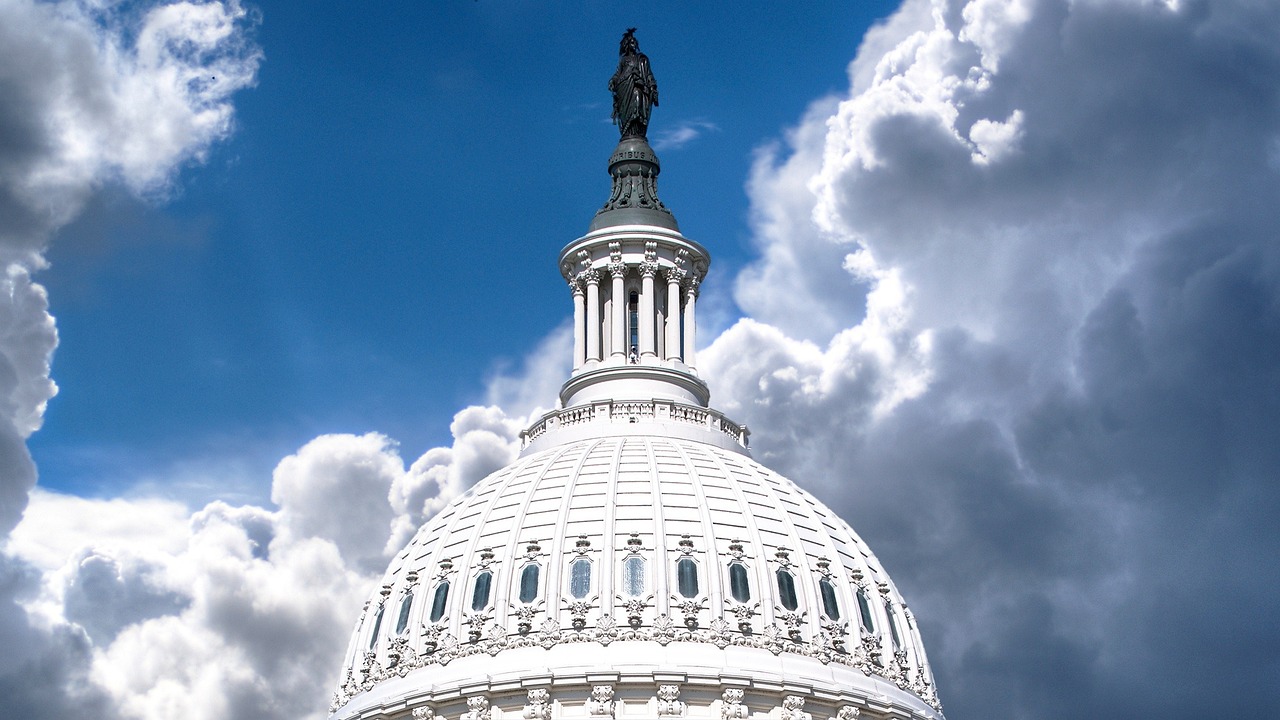
Historical Context of Democracy
Understanding the evolution of democracy is essential to grasping its significance in today’s world. The roots of democracy can be traced back to ancient civilizations, particularly in Greece, where the concept of citizen participation in governance first took shape. The word "democracy" itself comes from the Greek words "demos" (people) and "kratos" (power), meaning "power to the people." This early form of democracy was limited, as it excluded women, slaves, and non-citizens, but it laid the groundwork for future democratic ideals.
Fast forward to the Enlightenment period in the 17th and 18th centuries, when thinkers began to challenge the status quo of absolute monarchies. Major milestones during this time included the English Civil War and the Glorious Revolution, which emphasized the importance of individual rights and governance by consent. The writings of philosophers such as John Locke and Jean-Jacques Rousseau began to circulate, advocating for the idea that governments should be accountable to the people they govern.
As the world moved into the 19th century, the industrial revolution brought about significant social changes, leading to a growing demand for more inclusive political systems. The American Revolution (1775-1783) and the French Revolution (1789-1799) were pivotal events that showcased the people's desire for representation and equality. These revolutions not only inspired other nations but also highlighted the potential for democracy to flourish, even in the face of tyranny.
Throughout the 20th century, democracy faced numerous challenges, including the rise of authoritarian regimes and global conflicts. However, the post-World War II era saw a resurgence of democratic movements across Europe, Asia, and Africa. Countries began to recognize the importance of civil rights and the rule of law as foundational elements of a functioning democracy. The establishment of international organizations, such as the United Nations, also played a crucial role in promoting democratic values worldwide.
Today, democracy is often viewed through the lens of its various forms—liberal democracy, participatory democracy, and deliberative democracy, to name a few. Each of these forms reflects different historical contexts and cultural nuances. In many regions, the struggle for democracy continues, as people fight against oppressive regimes and advocate for their rights. The journey of democracy is ongoing, marked by both triumphs and setbacks, reminding us that it is a fragile yet powerful system that requires constant vigilance and participation.
In summary, the historical context of democracy is rich and complex. It is shaped by a myriad of events, philosophies, and movements that have influenced its development. Understanding this history is crucial for appreciating the challenges and opportunities that modern democracies face today.
- What is the origin of democracy? Democracy originated in ancient Greece, where the concept of citizen participation in governance was first introduced.
- How did the Enlightenment influence democracy? The Enlightenment period introduced ideas about individual rights and government accountability, laying the groundwork for modern democratic thought.
- What are some key milestones in the history of democracy? Key milestones include the American Revolution, the French Revolution, and the post-World War II democratization movements.
- Why is understanding the history of democracy important? Understanding the history of democracy helps us appreciate its significance and the ongoing struggles for representation and rights in various contexts.
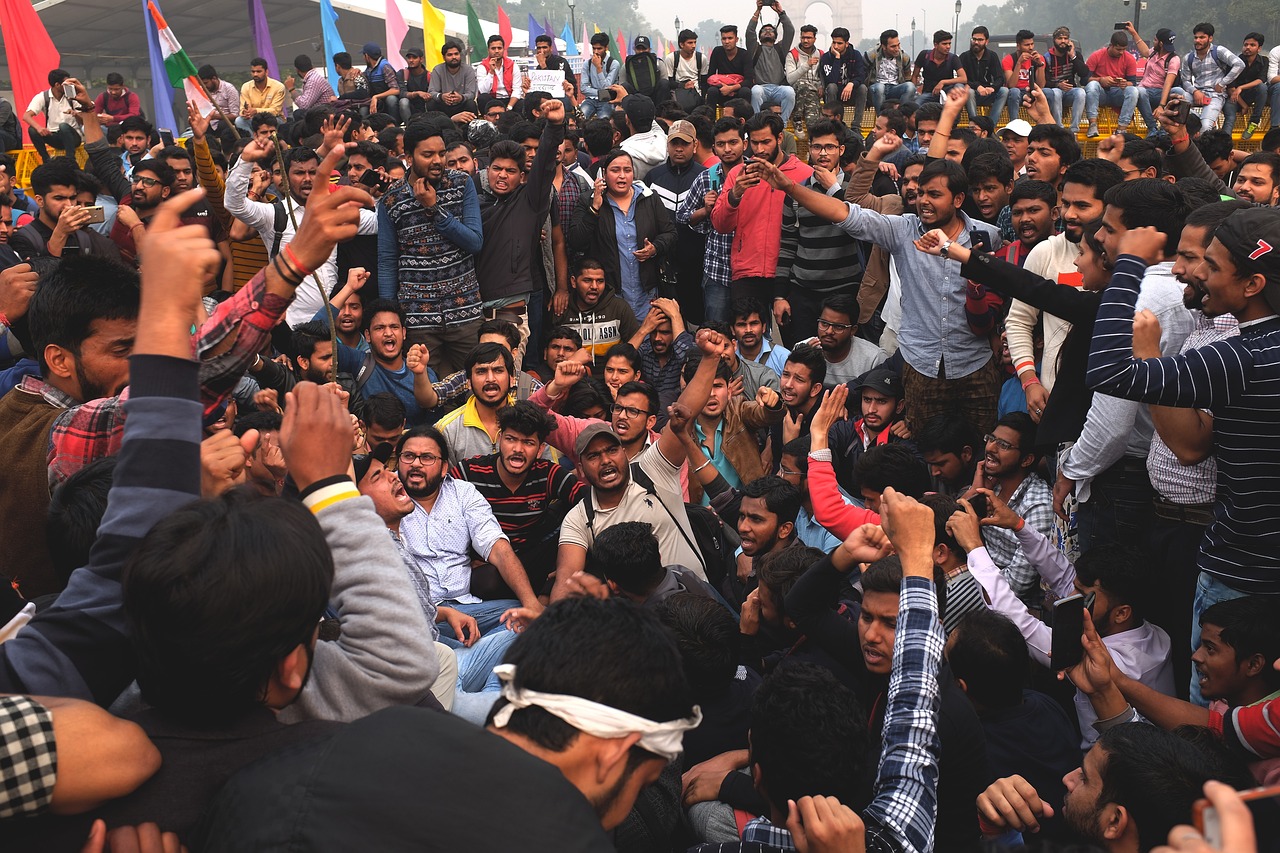
Key Political Philosophers
The realm of political philosophy has been shaped by a myriad of thinkers whose ideas have profoundly influenced democratic thought and practices. Among these intellectual giants, John Locke, Jean-Jacques Rousseau, and Karl Marx stand out for their groundbreaking contributions that continue to resonate in contemporary discussions about governance and individual rights. Their philosophies not only challenged existing norms but also laid the groundwork for democratic movements across the globe. Let’s dive deeper into their ideas and how they have shaped our understanding of democracy.
John Locke, often referred to as the father of liberalism, introduced revolutionary concepts that became the bedrock of modern democracy. His theories on natural rights and government by consent emphasize the importance of individual liberty and the role of the state in protecting these rights. Locke argued that every individual possesses inherent rights to life, liberty, and property, which must be safeguarded by the government. This notion of natural rights is pivotal, as it asserts that the legitimacy of political authority hinges on its ability to protect these rights.
Locke's concept of the social contract is a cornerstone in understanding democratic governance. He posited that individuals enter into a social contract with the state, agreeing to relinquish some freedoms in exchange for protection of their remaining rights. This mutual agreement is essential for establishing political legitimacy and accountability. In Locke's view, if a government fails to protect these rights, citizens are justified in overthrowing it, a radical idea that fueled democratic revolutions.
Locke’s assertion of natural rights underscores a fundamental belief in the inherent dignity of individuals. He argued that the government's primary role is to ensure these rights are not violated. This perspective laid the groundwork for future democratic principles, emphasizing that a just society is one where individual rights are prioritized and upheld. Locke's ideas inspired many revolutionary movements, including the American and French Revolutions, highlighting his lasting impact on global democracy.
Transitioning to Jean-Jacques Rousseau, his philosophies brought a fresh perspective to political thought, particularly with his ideas on popular sovereignty and the general will. Rousseau challenged the traditional notions of authority and advocated for a form of democracy that truly reflects the collective will of the people. He believed that legitimate political authority arises from the consent of the governed, emphasizing that the state should represent the general will rather than the interests of a select few.
Rousseau's concept of the general will is particularly fascinating; it suggests that the collective desires of the populace should guide political decisions. This idea promotes a more participatory form of democracy, encouraging citizens to engage actively in governance. His work has inspired various democratic movements, advocating for a government that is responsive to the needs and desires of its citizens.
In summary, the contributions of these political philosophers have been instrumental in shaping the landscape of democracy. Their ideas challenge us to think critically about the role of government, the rights of individuals, and the importance of civic engagement. As we navigate the complexities of modern governance, reflecting on their philosophies can provide valuable insights into the ongoing struggle for democracy.
- Who is considered the father of liberalism?
John Locke is widely regarded as the father of liberalism due to his influential ideas about natural rights and government by consent. - What is the social contract theory?
The social contract theory posits that individuals consent to form a government that will protect their rights, establishing a mutual agreement that legitimizes political authority. - How did Rousseau's ideas influence modern democracy?
Rousseau's concepts of popular sovereignty and the general will advocate for a participatory democracy, emphasizing that the government should reflect the collective will of the people.

John Locke's Influence
John Locke, often hailed as the father of liberalism, made profound contributions to political philosophy that continue to resonate in modern democratic thought. His ideas on natural rights, particularly the rights to life, liberty, and property, laid the groundwork for the fundamental principles of democracy. Locke argued that these rights are not granted by any government but are inherent to every individual, a concept that fundamentally challenges the notion of absolute authority. Imagine a world where individuals are not merely subjects of a ruler but possess rights that cannot be taken away—this is the essence of Locke's philosophy.
Locke's emphasis on the social contract further revolutionized political thought. He proposed that governments are formed through an implicit agreement between the governed and the governing. This contract implies that citizens consent to surrender some of their freedoms in exchange for the protection of their remaining rights. If a government fails to uphold its end of the bargain, Locke argued, the people have not only the right but the duty to revolt. This idea of accountability is crucial for the legitimacy of any governing body.
To understand Locke's influence on democracy, it's essential to explore the components of his social contract theory. Here are a few key points:
- Consent of the Governed: The authority of the government is derived from the consent of the people, making it accountable to them.
- Right to Revolt: If a government becomes tyrannical, citizens have the right to overthrow it.
- Protection of Natural Rights: The primary role of government is to protect the natural rights of individuals.
Locke's assertion of natural rights not only influenced the founding fathers of the United States but also inspired democratic movements around the world. His ideas can be seen echoed in the Declaration of Independence, where the phrase "life, liberty, and the pursuit of happiness" reflects Locke's philosophy. The ripple effects of his thoughts can be traced through revolutions and reforms that sought to establish governments based on democratic principles.
In summary, John Locke's influence on democracy is profound and multifaceted. His theories on natural rights and the social contract have provided a framework for understanding the relationship between individuals and their government. By advocating for a system where the government is accountable to the people, Locke not only shaped the political landscape of his time but also laid the foundation for modern democratic ideals that persist today.
- What are John Locke's main contributions to political philosophy? Locke is best known for his theories on natural rights and the social contract, which emphasize individual liberty and government accountability.
- How did Locke influence the founding of the United States? His ideas on natural rights were instrumental in shaping the Declaration of Independence and the U.S. Constitution.
- What is the social contract theory? The social contract is an agreement between individuals and their government, where citizens consent to be governed in exchange for the protection of their rights.

Social Contract Theory
The is a cornerstone of political philosophy that seeks to explain the legitimacy of authority and governance. Imagine a world where individuals exist in a state of nature, free yet vulnerable. In this scenario, without a governing body, chaos reigns, and personal safety is constantly at risk. This is where the social contract comes into play. It posits that individuals consent, either explicitly or implicitly, to surrender some of their freedoms to a governing body in exchange for protection and the maintenance of social order. It's like a mutual agreement where everyone agrees to play by the rules for the greater good.
Key thinkers like John Locke, Thomas Hobbes, and Jean-Jacques Rousseau have all contributed to this theory, albeit with differing perspectives. For Hobbes, the social contract was a necessity to escape the brutality of the state of nature, leading to a powerful sovereign. In contrast, Locke viewed the social contract as a means to protect individual rights—life, liberty, and property—while Rousseau emphasized the collective will of the people. This divergence highlights how the social contract can be interpreted in various ways, depending on the underlying values prioritized by each philosopher.
To better understand the implications of social contract theory, consider the following key points:
- Legitimacy of Government: The authority of the state derives from the consent of the governed, making it accountable to the people.
- Rights and Responsibilities: Citizens have inherent rights that must be respected, while also bearing responsibilities towards the community.
- Political Legitimacy: A government that fails to uphold the social contract risks losing its legitimacy, leading to civil unrest or revolution.
In essence, the social contract serves as a crucial framework for understanding the relationship between individuals and their government. It establishes a foundation for political legitimacy and accountability, which are essential for a thriving democracy. When citizens feel that their rights are upheld, they are more likely to engage in the democratic process, advocate for change, and hold their leaders accountable. However, when the social contract is perceived as broken—due to corruption, inequality, or oppression—discontent can grow, leading to significant challenges for democratic governance.

Natural Rights
In the realm of political philosophy, hold a pivotal position, especially through the lens of John Locke's theories. Locke argued that every individual is born with certain inherent rights that are not granted by any government or authority but are instead a fundamental part of being human. These rights, which include life, liberty, and property, form the bedrock of a just society. The protection of these rights is the primary role of any government, according to Locke, creating a social contract where individuals consent to surrender some freedoms in exchange for the safeguarding of their essential rights.
This concept of natural rights challenges the notion that rights are merely privileges bestowed by rulers or governments. Instead, it asserts that rights are universal and should be respected and upheld by all forms of governance. Imagine a world where your basic rights are not guaranteed; it would be chaotic and unjust, wouldn't it? This is why Locke's ideas resonate even today, as they advocate for a system where the government is accountable to the people and must act in their best interests.
Moreover, the implications of natural rights extend far beyond individual liberty. They serve as a foundation for democratic principles, influencing various movements and constitutions around the globe. For instance, the United States Declaration of Independence echoes Locke’s philosophy, asserting that all men are created equal and endowed with certain unalienable rights. This historical document not only reflects the influence of Locke but also highlights the ongoing struggle to uphold these rights in the face of tyranny and oppression.
To better understand the concept of natural rights, consider the following key aspects:
- Inherent Nature: Natural rights are intrinsic to every individual, regardless of their societal status or government structure.
- Universal Application: These rights apply to all people, transcending cultural and geographical boundaries.
- Government's Role: The primary duty of government is to protect these rights, ensuring that individuals can live freely and securely.
Locke’s emphasis on natural rights also led to discussions about the limits of governmental power. If a government fails to protect these rights or actively infringes upon them, Locke argued that citizens have the right to revolt and establish a new government that will uphold their natural rights. This revolutionary idea has inspired countless movements for freedom and justice throughout history.
In conclusion, the concept of natural rights is more than just a philosophical idea; it is a vital component of the democratic framework. By understanding and advocating for these rights, individuals can contribute to a society where justice prevails and freedom is cherished. As we navigate the complexities of modern governance, the fundamental principles of natural rights remain a guiding light, reminding us of the inherent dignity and worth of every human being.
What are natural rights?
Natural rights are fundamental rights that every individual possesses by virtue of being human, including life, liberty, and property. These rights are not granted by any government but are inherent and must be protected by the state.
Who is John Locke?
John Locke was a 17th-century English philosopher whose ideas on natural rights and government by consent significantly influenced modern democratic thought and practices.
Why are natural rights important in a democracy?
Natural rights are crucial in a democracy as they ensure that individuals are treated fairly and justly, providing the foundation for political legitimacy and accountability of the government to its citizens.
Can natural rights be taken away?
While natural rights are inherent, they can be violated or ignored by governments. However, the philosophy of natural rights asserts that individuals have the right to resist and seek justice when their rights are infringed upon.

Jean-Jacques Rousseau's Contributions
Jean-Jacques Rousseau stands out as a pivotal figure in the landscape of political philosophy, with contributions that have profoundly influenced democratic thought. His ideas challenge traditional notions of authority and governance, advocating for a system that reflects the collective will of the people. Rousseau's concept of popular sovereignty asserts that true political power resides not with rulers but with the citizens, fundamentally reshaping the understanding of democracy. This radical shift emphasizes that the legitimacy of any government is derived from the consent of the governed, a notion that resonates deeply in today's democratic societies.
Rousseau's emphasis on the general will is another cornerstone of his philosophy. He argues that the general will represents the common good, which transcends individual interests. This idea suggests that for a democracy to function effectively, it must prioritize the welfare of the community over personal desires. In his view, individuals, when united as a collective, can achieve a higher moral standard, leading to a more just and equitable society. However, this raises an important question: how do we ensure that the general will is truly representative of all citizens, rather than a majority imposing its will on minorities?
Moreover, Rousseau's belief in participatory democracy encourages active engagement from citizens in the political process. He posited that for democracy to thrive, individuals must not only have the right to vote but also a duty to participate in civic life. This participation fosters a sense of community and shared responsibility, reinforcing the social bonds that hold societies together. Rousseau's vision of democracy is not merely about casting ballots; it is about cultivating an informed and engaged populace that actively shapes its governance.
In addition to these philosophical contributions, Rousseau's thoughts on education also play a crucial role in his vision of democracy. He believed that education should not only impart knowledge but also instill civic virtues, preparing individuals to be responsible citizens. By advocating for an education that emphasizes moral development and community engagement, Rousseau laid the groundwork for the civic education movements that we see today.
To summarize Rousseau's contributions, we can highlight some of his key ideas:
- Popular Sovereignty: The belief that political power originates from the people.
- General Will: The collective interest of the citizenry that should guide governance.
- Participatory Democracy: The importance of citizen engagement in political processes.
- Civic Education: The necessity of educating citizens to fulfill their democratic duties.
Rousseau's work remains relevant as we navigate the complexities of modern democracy. His insights challenge us to reflect on how we can create a political system that genuinely represents the voices of all citizens. As we face contemporary issues such as political polarization and disenfranchisement, Rousseau's call for a government that embodies the general will serves as a reminder of the ideals we must strive to achieve.
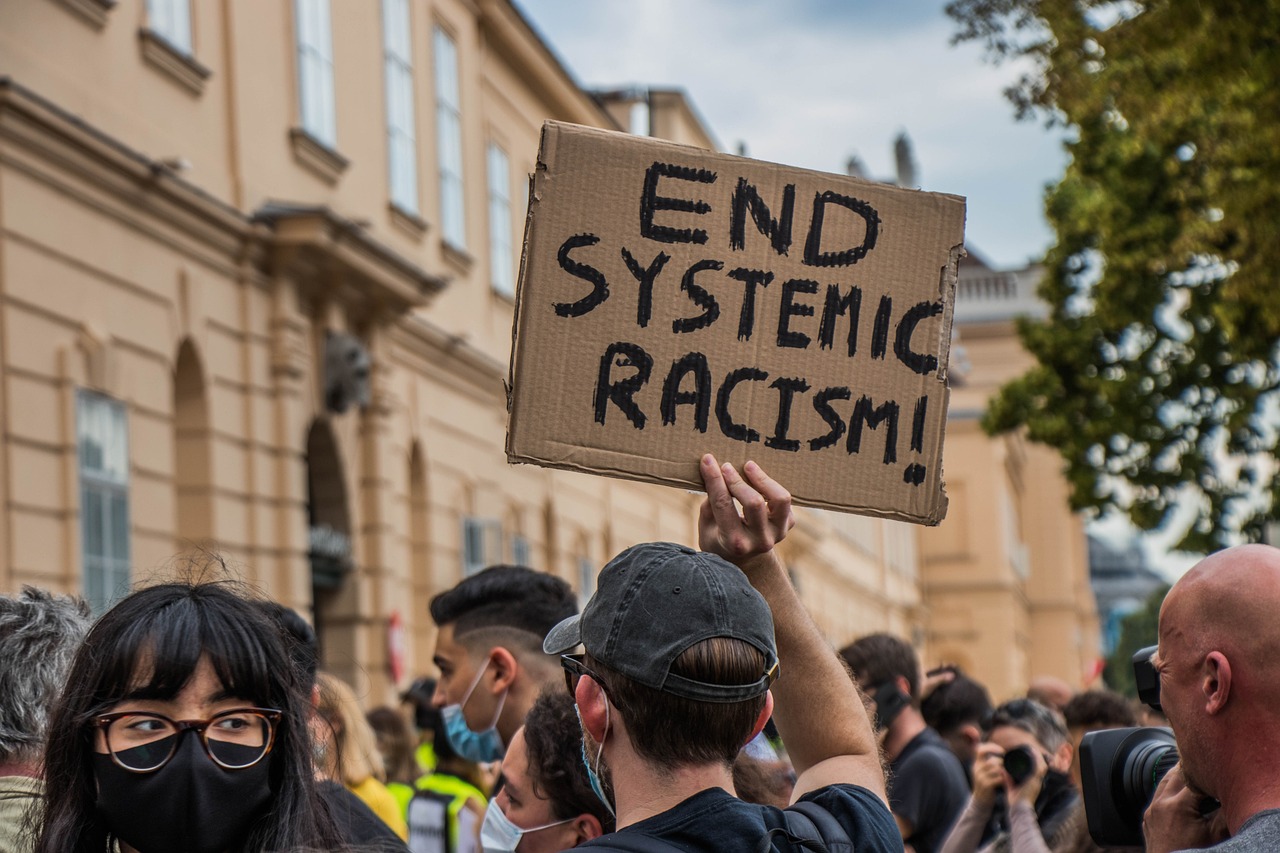
Modern Democratic Movements
In today's world, the quest for democracy is more vibrant than ever, with movements sprouting up across the globe like wildflowers in a spring meadow. These are not just a response to oppressive regimes; they are a testament to the enduring human spirit that yearns for freedom and justice. From the bustling streets of Hong Kong to the sun-soaked squares of Tunisia, everyday citizens are making their voices heard, demanding political representation, civil rights, and social justice. But what drives these movements, and how do they shape the political landscape?
One of the most profound aspects of modern democratic movements is their grassroots nature. Unlike traditional political parties, which often operate from the top down, grassroots movements emerge from the community level, mobilizing ordinary people to advocate for change. This decentralized approach not only fosters a sense of ownership among participants but also allows for a diversity of voices to be represented. For instance, the Black Lives Matter movement in the United States has galvanized millions around issues of racial injustice and police brutality, demonstrating the power of collective action. The movement's impact extends beyond protests, influencing policy discussions and public opinion.
Moreover, these movements often utilize technology as a powerful tool for organization and communication. Social media platforms like Twitter and Facebook have become essential for activists to share information, coordinate actions, and rally support. However, this digital revolution comes with its own set of challenges. While technology can amplify voices, it can also lead to the spread of misinformation and create echo chambers that stifle healthy debate. The balance between utilizing technology for positive change and navigating its pitfalls is a crucial aspect of modern democratic activism.
Another noteworthy feature of modern democratic movements is their ability to adapt and evolve in response to changing circumstances. For example, the Arab Spring, which began in 2010, showcased how a series of protests could quickly escalate into a widespread demand for democratic reforms across the Middle East and North Africa. While not all outcomes were successful, the movements sparked conversations about governance and rights that continue to resonate today. The lessons learned from these events inform current struggles, as activists draw on past experiences to refine their strategies and approaches.
However, the road to democracy is fraught with challenges. Many modern democratic movements face significant obstacles, including government crackdowns, censorship, and societal pushback. For instance, in Belarus, peaceful protests against the government were met with severe repression, highlighting the risks activists take in their pursuit of change. The resilience of these movements, despite such challenges, speaks volumes about their commitment to the cause and the belief that change is possible.
In conclusion, modern democratic movements are a dynamic and essential part of the global political landscape. They embody the struggle for freedom, equality, and justice, showcasing the power of collective action and the importance of civic engagement. As these movements continue to evolve, they remind us that the fight for democracy is ongoing, and that every voice matters in shaping the future of governance.
- What are modern democratic movements? Modern democratic movements refer to grassroots efforts by citizens to advocate for political representation, civil rights, and social justice, often utilizing technology and social media for organization.
- How do grassroots movements differ from traditional political parties? Grassroots movements emerge from the community level and prioritize the voices of ordinary people, while traditional political parties often operate from the top down.
- What role does technology play in modern democratic movements? Technology serves as a powerful tool for organization and communication, enabling activists to share information and coordinate actions, although it also presents challenges like misinformation.
- What challenges do modern democratic movements face? These movements often encounter government crackdowns, censorship, and societal pushback, which can hinder their progress and threaten the safety of participants.

Grassroots Activism
Grassroots activism is like the pulse of democracy, beating steadily in the hearts of communities around the world. It's the collective voice of ordinary people rising up to demand change, often in response to injustices that affect their daily lives. Imagine a small seed planted in a garden; with the right conditions, it can grow into a towering tree, providing shade and shelter for many. Similarly, grassroots movements begin with a few passionate individuals who band together to advocate for a cause, and over time, they can create a significant impact on political landscapes.
At its core, grassroots activism is about *empowerment*. It encourages individuals to take ownership of their communities and to engage in the political process. This form of activism often emerges from local issues, whether it's fighting against environmental degradation, advocating for social justice, or pushing for educational reforms. The beauty of grassroots movements lies in their ability to mobilize people from diverse backgrounds, uniting them under a common goal. Through organized efforts, they can influence policy changes, hold leaders accountable, and inspire others to join the fight.
One of the most striking features of grassroots activism is its reliance on community engagement and local knowledge. Activists often utilize a variety of strategies to raise awareness and generate support, including:
- Community meetings and forums
- Social media campaigns
- Petition drives
- Collaborations with local organizations
These tactics not only amplify their message but also foster a sense of belonging and shared purpose among participants. For instance, social media has become a powerful tool for grassroots movements, allowing activists to reach a wider audience, share stories, and mobilize supporters quickly. Platforms like Twitter and Facebook have played pivotal roles in movements such as Black Lives Matter and the Women's March, demonstrating how digital spaces can enhance grassroots efforts.
However, grassroots activism is not without its challenges. Activists often face **opposition** from established power structures that may feel threatened by their demands for change. This can manifest in various forms, such as political pushback, legal challenges, or even violence. Yet, history has shown us that perseverance can lead to transformative outcomes. For example, the Civil Rights Movement in the United States was largely driven by grassroots efforts, which ultimately led to significant legislative changes and greater social justice.
In conclusion, grassroots activism serves as a vital mechanism for change in democratic societies. It empowers individuals, fosters community engagement, and challenges the status quo. As we look to the future, the continued strength of grassroots movements will be essential in shaping a more equitable and just world. Are you ready to join the movement and make your voice heard?
- What is grassroots activism? Grassroots activism refers to the efforts of ordinary people coming together to advocate for change at the local or community level.
- How can I get involved in grassroots activism? You can start by joining local organizations, participating in community meetings, or using social media to raise awareness about issues you care about.
- What are some successful examples of grassroots activism? Notable examples include the Civil Rights Movement, the Women's Suffrage Movement, and more recently, the climate justice movement led by young activists.

Challenges to Democracy
The journey of democracy is often fraught with obstacles that can hinder its growth and stability. Despite the progress made in various nations, democracies worldwide face a myriad of challenges that threaten to undermine their very foundation. One of the most pressing issues is the rise of authoritarianism. Many countries that once embraced democratic principles are witnessing a resurgence of leaders who prioritize power over the will of the people. This shift not only erodes democratic norms but also diminishes the role of civil society and independent media.
Another significant challenge is corruption. When public officials prioritize personal gain over the public good, trust in democratic institutions wanes. Corruption can manifest in various forms, from bribery to nepotism, and it often leads to a misallocation of resources, leaving the most vulnerable populations without essential services. The impact of corruption is profound, creating a vicious cycle where citizens feel disillusioned and disengaged from the political process.
Furthermore, inequality poses a serious threat to democracy. Economic disparities can lead to unequal political representation, where the voices of the wealthy overshadow those of the marginalized. This imbalance can result in policies that favor the elite, perpetuating social injustices and disenfranchising large segments of the population. The struggle for equity in political representation is ongoing, as activists and citizens alike work to ensure that every voice is heard and valued.
In addition to these challenges, the spread of misinformation has become a formidable barrier to informed public discourse. With the rise of social media, false narratives can quickly gain traction, leading to polarization and division within society. This environment makes it increasingly difficult for citizens to engage in constructive dialogue and hampers the ability to make informed decisions during elections. The battle against misinformation is crucial for the health of any democracy, as it directly affects the electorate's ability to understand the issues at hand.
To illustrate these challenges, consider the following table that summarizes the major threats to democratic governance:
| Challenge | Description | Impact on Democracy |
|---|---|---|
| Authoritarianism | Resurgence of leaders prioritizing power over people | Erodes democratic norms and civil liberties |
| Corruption | Public officials engaging in unethical practices | Decreases trust in institutions and disenfranchises citizens |
| Inequality | Economic disparities affecting political representation | Perpetuates social injustice and marginalizes voices |
| Misinformation | Spread of false narratives via social media | Polarizes society and impairs informed decision-making |
In conclusion, the challenges to democracy are complex and interconnected, requiring a concerted effort from citizens, civil society, and governments to address them effectively. As we navigate these turbulent waters, it is essential to remain vigilant and proactive in defending democratic principles. Only through collective action can we hope to overcome these hurdles and ensure a brighter future for democracy worldwide.
- What are the main threats to democracy? The main threats include authoritarianism, corruption, inequality, and misinformation.
- How does corruption affect democratic governance? Corruption undermines trust in institutions and can lead to disenfranchisement of citizens.
- Why is equality important in a democracy? Equality ensures that all voices are heard and represented, preventing the marginalization of any group.
- What role does misinformation play in democratic processes? Misinformation can polarize society and hinder informed decision-making, leading to a less engaged electorate.

The Role of Education in Democracy
Education plays a crucial role in shaping a vibrant democracy. It empowers individuals with the knowledge and skills necessary to engage actively in political processes. Imagine a society where every citizen understands their rights and responsibilities—this is the essence of a thriving democratic state. Education fosters critical thinking, enabling individuals to analyze information, question authority, and make informed decisions. Without this foundation, democracy can falter, leading to apathy and disengagement.
At its core, education cultivates informed citizens who are not only aware of their rights but also understand the importance of civic participation. This engagement can manifest in various ways, from voting in elections to participating in community discussions. In fact, studies have shown that individuals with higher levels of education are more likely to vote and engage in civic activities. This correlation underscores the necessity of integrating comprehensive civic education into our schooling systems.
One of the most effective ways to promote civic engagement is through civic education programs. These initiatives aim to equip students with the knowledge they need to navigate the complexities of democracy. By learning about political systems, the importance of voting, and the role of civic duty, students gain the tools to become active participants in their communities. Such programs can include:
- Workshops on the electoral process
- Debates on current issues
- Community service projects that encourage local involvement
Moreover, the impact of technology on education cannot be overlooked. In today’s digital age, technology has transformed how we access information and engage with political discourse. Online platforms provide unprecedented opportunities for individuals to educate themselves and participate in activism. Social media, for instance, has become a powerful tool for mobilizing communities and spreading awareness about critical issues. However, this transformation also presents challenges, such as the spread of misinformation and the potential for echo chambers that reinforce divisive views.
In conclusion, the role of education in democracy is multifaceted and essential. By fostering informed and engaged citizens, education lays the groundwork for a healthy democratic society. It is imperative that we prioritize civic education and leverage technology to enhance political engagement. As we look toward the future, we must ask ourselves: how can we continue to innovate educational practices to ensure that every citizen is prepared to contribute to our democratic processes?
- Why is education important for democracy?
Education empowers citizens with the knowledge and skills necessary for informed participation in democratic processes. - What are civic education programs?
Civic education programs are initiatives designed to teach individuals about their rights, responsibilities, and the importance of civic engagement. - How does technology affect political engagement?
Technology provides new platforms for activism and information dissemination, but it also poses challenges such as misinformation.

Civic Education Programs
Civic education programs are essential for nurturing informed and active citizens in any democracy. These initiatives aim to equip individuals with the knowledge and skills necessary to participate meaningfully in civic life. Imagine a community where every citizen understands their rights and responsibilities; that’s the vision behind effective civic education. Programs often cover various topics, including the structure of government, the electoral process, and the significance of civic engagement. By fostering a sense of responsibility and awareness, these programs help to create a more engaged electorate.
One of the key components of civic education is teaching the importance of active participation. This includes not only voting but also engaging in discussions, attending town hall meetings, and advocating for social issues. When citizens are informed about their civic duties, they are more likely to take part in the democratic process and hold their leaders accountable. Moreover, civic education fosters critical thinking skills, enabling individuals to analyze information, question assumptions, and make informed decisions.
Many civic education programs are implemented in schools, community centers, and through non-profit organizations. They often include interactive elements such as workshops, debates, and simulations that allow participants to practice democratic processes in a safe environment. For instance, mock elections can provide students with a hands-on understanding of how elections work, while discussions about current events can help them connect theory to real-world situations.
In addition to traditional methods, technology plays a significant role in modern civic education. Online platforms and social media can facilitate the dissemination of information and encourage dialogue among citizens. However, it’s crucial that these digital spaces promote accurate information and constructive discussions to prevent the spread of misinformation, which can undermine democratic engagement.
To illustrate the impact of civic education programs, consider the following table that outlines some key benefits:
| Benefit | Description |
|---|---|
| Informed Citizens | Civic education provides individuals with the knowledge they need to understand their rights and responsibilities. |
| Active Participation | Encourages individuals to engage in the democratic process through voting and advocacy. |
| Critical Thinking | Develops skills necessary for analyzing information and making informed decisions. |
| Community Engagement | Fosters a sense of belonging and responsibility within the community. |
In conclusion, civic education programs are vital for the health of democracy. They empower individuals to not only understand their rights but also to act upon them. As we face challenges such as misinformation and apathy, investing in civic education is more crucial than ever. After all, a well-informed citizenry is the backbone of a vibrant democracy.
- What is the purpose of civic education programs?
The primary goal is to educate citizens about their rights and responsibilities, promoting active participation in the democratic process. - How can I get involved in civic education?
You can participate in local programs, volunteer with organizations that focus on civic engagement, or advocate for civic education in schools. - What role does technology play in civic education?
Technology provides new platforms for learning and engagement, allowing for broader access to information and facilitating discussions among citizens.
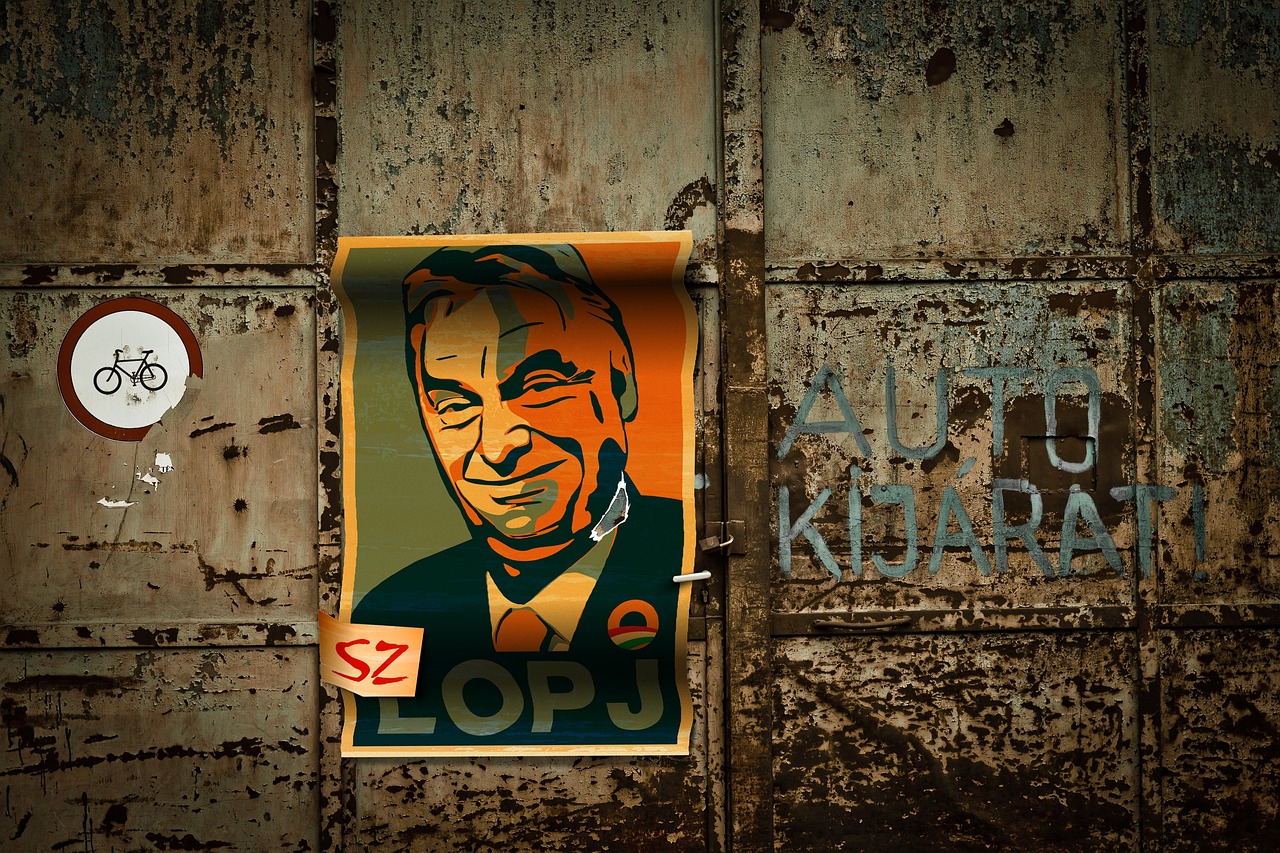
Impact of Technology
Technology has revolutionized the way we engage with politics and democracy, creating both opportunities and challenges that were unimaginable just a few decades ago. Imagine a world where a single tweet can spark a global movement or where citizens can mobilize in mere seconds to voice their concerns. This is the reality we live in today, where digital platforms serve as the battleground for democratic ideals and activism.
Social media, in particular, has become a double-edged sword in the realm of political engagement. On one hand, it provides a space for marginalized voices to be heard, allowing grassroots movements to flourish. For instance, the Arab Spring showcased how platforms like Facebook and Twitter were instrumental in organizing protests against authoritarian regimes. Activists utilized these tools to share information, mobilize supporters, and challenge the status quo. The result? A wave of change that swept across multiple nations, demonstrating the power of collective action.
However, the impact of technology is not solely positive. The same platforms that empower citizens can also be manipulated to spread misinformation, sow discord, and undermine democratic processes. The rise of fake news and targeted disinformation campaigns has raised serious questions about the integrity of information circulating online. In some cases, these tactics have led to significant political upheaval, illustrating that while technology can enhance democratic engagement, it can also pose substantial risks.
To better understand the multifaceted impact of technology on democracy, consider the following table that outlines both the advantages and disadvantages:
| Advantages | Disadvantages |
|---|---|
|
|
Moreover, the advent of technology has also transformed traditional forms of political engagement. Online petitions, virtual town halls, and e-voting are just a few examples of how digital tools are reshaping the democratic landscape. These innovations provide citizens with new avenues to express their opinions and participate in governance, making democracy more accessible than ever before. However, as we embrace these advancements, it is crucial to remain vigilant about the potential downsides, including the digital divide that may leave certain populations behind.
In conclusion, technology's impact on democracy is profound and complex. It has the power to unite and divide, to inform and mislead. As we navigate this ever-evolving digital landscape, it is essential for citizens, policymakers, and tech companies to work collaboratively to harness the positive aspects of technology while mitigating its risks. Only then can we ensure that our democratic systems remain robust and resilient in the face of change.
- How has social media changed political activism? Social media has made it easier for activists to organize, share information, and mobilize support quickly, often leading to significant political movements.
- What are the risks of misinformation in politics? Misinformation can mislead voters, create division, and undermine trust in democratic institutions, posing a serious threat to the electoral process.
- How can technology enhance civic engagement? Technology provides new tools for citizens to engage with their governments, such as online petitions, virtual town halls, and e-voting, making participation more convenient.
Frequently Asked Questions
- What is democracy?
Democracy is a system of government where the citizens exercise power directly or elect representatives to make decisions on their behalf. It's all about the people having a say in how they're governed, ensuring that everyone has a voice in political matters.
- Who are some key political philosophers that influenced democracy?
Some of the most influential political philosophers include John Locke, who emphasized natural rights and government by consent, and Jean-Jacques Rousseau, who introduced the concept of popular sovereignty. Their ideas have profoundly shaped modern democratic thought.
- What is the social contract theory?
The social contract theory is a philosophical concept that suggests individuals come together to form a society and agree on certain rules and responsibilities. This agreement forms the basis of political legitimacy and accountability, ensuring that governments serve the interests of the people.
- How does education impact democracy?
Education plays a crucial role in democracy by equipping individuals with the knowledge and skills needed for active participation. It fosters critical thinking and civic responsibility, empowering citizens to make informed decisions and engage in democratic processes.
- What challenges do modern democracies face?
Modern democracies encounter several challenges, including authoritarianism, corruption, and inequality. These issues can undermine democratic governance and limit the effectiveness of political representation and civil rights.
- What role do grassroots movements play in democracy?
Grassroots movements are essential for shaping democratic landscapes. They often emerge from community-led initiatives that advocate for policy changes and increased political engagement, demonstrating the power of collective action in the quest for social justice.
- How has technology changed political engagement?
Technology has revolutionized political engagement by providing new platforms for activism and information sharing. While it enhances communication and mobilization, it also poses challenges, such as the spread of misinformation and the potential for digital surveillance.



